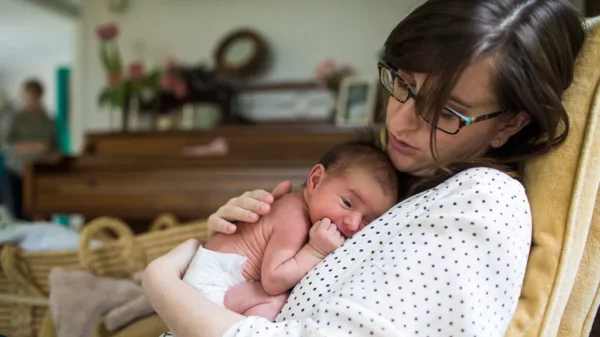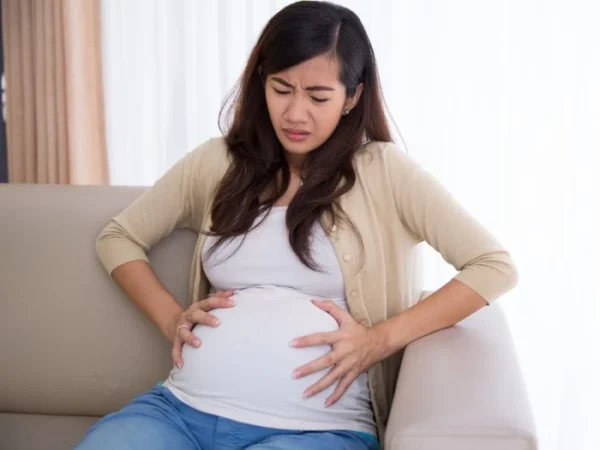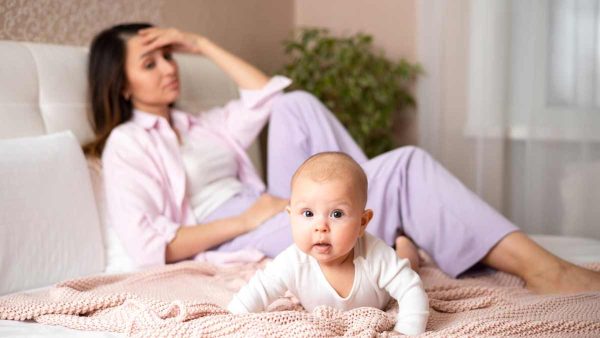Having a baby is an amazing time, but it comes with lots of new challenges – like how to deal with postpartum. One issue that can be particularly tough to manage is vaginal odor.
I was a new mom who just had her bundle of joy when all the changes in my body post-pregnancy began to happen – and one of those changes was an increase in vaginal odor. It was a bit embarrassing at first, but I quickly realized that this was a totally normal side effect of pregnancy and childbirth.
I stumbled upon this article that helped me understand that everything that was happening to my body is normal and that all women experience postpartum in different ways. Check it out here: https://veebabes.com/postpartum-vaginal-odor/.
That’s the reason why I decided to write this post – to help other women who might be going through the same thing. This post is all about helping you understand postpartum and how to deal with it – including some tips on how to manage vaginal odor.
What is postpartum?

Postpartum is the period of time after you’ve given birth when your body is going through lots of changes. It can last for up to six weeks, but every woman is different. During this time, you might experience things like hormonal changes, mood swings, and physical healing. All of these things can contribute to postpartum vaginal odor.
During pregnancy, your body goes through lots of changes. Hormone levels fluctuate and your body produces more sweat and discharge. This can sometimes lead to an unpleasant smell down there.
There are a few things you can do to help manage postpartum odor:
- Wash regularly with warm water and mild soap. Avoid using harsh chemicals or fragranced products as these can irritate the delicate skin around your vagina.
- Wear breathable underwear made from natural fabrics like cotton. Synthetic materials can trap moisture and make the odor worse.
- Change your pads or tampons frequently. When they become soaked with blood, they can start to smell.
- Avoid tight-fitting clothing. Clothing that rubs against your vagina can irritate it and cause odor.
- Practice good hygiene. This means washing your hands before and after you go to the bathroom, and wiping from front to back to avoid introducing bacteria from your anus into your vagina.
- Probiotics might help. Probiotics are good bacteria that help keep your vagina healthy. You can find them in supplement form or yogurt and other fermented foods.

After giving birth, the uterus contracts and the top of the vagina closes. This process is called involution. It takes about six weeks for the uterus to return to its normal size. During this time, you may have some vaginal discharge that contains blood, mucus, or both. This is called lochia and is a normal part of postpartum recovery. Lochia usually lasts for four to six weeks postpartum.
You may notice that your vagina feels different. It may be bruised, swollen, or tender from childbirth. These changes are also normal and will go away over time. Light exercises, like kegel exercises, can help speed up healing.
Some serious conditions can cause postpartum vaginal odor. These include infections, such as bacterial vaginosis or yeast infection, or an STI. If you’re experiencing postpartum vaginal odor along with other symptoms like itching, burning, or pain, see your doctor to rule out any infections.
In most cases, postpartum vaginal odor is nothing to worry about and will go away on its own. But if you’re concerned or it persists despite trying home remedies, talk to your doctor. They can help you figure out what’s causing the problem and get you the treatment you need.
Bacterial vaginosis is nothing to feel ashamed of. It’s a common infection, especially during pregnancy. It’s caused by an imbalance of the bacteria in your vagina. Symptoms include vaginal odor, itching, burning, and pain. Bacterial vaginosis is treated with antibiotics.
Yeast infection is another common infection during pregnancy. It’s caused by an overgrowth of yeast in your vagina. Symptoms include vaginal odor, itching, burning, and pain. Yeast infections are treated with antifungal medication, so be sure to talk to your doctor before taking any type of medication or treatment

STIs can also cause postpartum vaginal odor. If you think you may have an STI, see your doctor for testing and treatment. Some STIs, like chlamydia and gonorrhea, can be cured with antibiotics, while others, like HIV, have no cure.
Most important of all is to not let these changes affect your mental health and your self-esteem. You have been through a lot and your body is going through a lot of changes. Be patient and give yourself time to heal. If you’re feeling down, talk to your friends, family, or doctor. They can offer support and help you get the treatment you need.
There are a lot of communities of women giving each other advice on the internet and if you still are not a part of one of these communities, I recommend you search for one and sign in as fast as possible. You don’t know what you’re missing!
Thousands of women from around the globe have already joined postpartum communities and are more than willing to help out other new mothers who are struggling. In these postpartum communities, you will not only get useful information and advice, but you will also find emotional support and understanding. These women know exactly what you’re going through because they have been there themselves. So don’t hesitate to reach out and join one of these communities today!
If you’re concerned about postpartum odor, talk to your doctor. They can help you rule out any underlying medical conditions and give you further tips on how to manage them. There are a lot of challenges to face during the postpartum period, but by taking care of yourself and your body, you’ll get through it. And before you know it, you’ll be back to feeling like your old self again.




